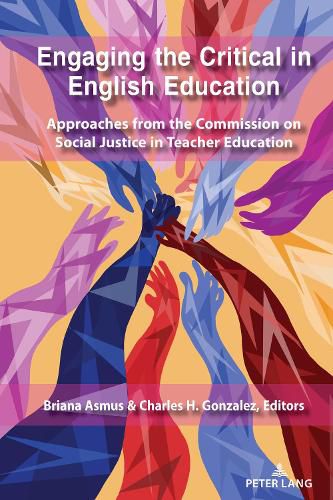Readings Newsletter
Become a Readings Member to make your shopping experience even easier.
Sign in or sign up for free!
You’re not far away from qualifying for FREE standard shipping within Australia
You’ve qualified for FREE standard shipping within Australia
The cart is loading…






This title is printed to order. This book may have been self-published. If so, we cannot guarantee the quality of the content. In the main most books will have gone through the editing process however some may not. We therefore suggest that you be aware of this before ordering this book. If in doubt check either the author or publisher’s details as we are unable to accept any returns unless they are faulty. Please contact us if you have any questions.
The chapters in this collection explore the implementation of social justice pedagogies with preservice teachers by members of the Commission on Social Justice in Teacher Education; a group of teacher educators from across the country whose primary goal is to prepare teachers to use socially just models to reach all groups of students and to create a more equitable educational system. In this collection, each member/author presents a critical model of social justice teaching by considering the ways in which gender, race, class, and other intersections function in the classroom. Individually, authors enact critical models by interrogating inequitable systems of oppression in their own professional and pedagogical environments. Collectively, the chapters ask what thoughtful, participatory social justice pedagogy looks like in multidimensional pedagogical spaces. At all levels, this collection explores the rewards and challenges of social justice pedagogy within and outside of preservice teacher preparation programs influenced by a constantly shifting political landscape. Ultimately, this collection seeks to discover how ideas of social justice are conceptualized and understood by English educators and K-12 teachers.
As a possible approach to this question, the chapters in this collection support ELATE-SJ’s paradigm for advocacy. This paradigm includes three areas of enaction: research, scholarship, and action. Within these areas, members of the commission (authors) seek to better understand how preservice ELA teachers see themselves and others, to develop flexible teaching models grounded in social justice pedagogy (SJP), and to delineate opportunities for transformation, growth, and change in and through our profession.
$9.00 standard shipping within Australia
FREE standard shipping within Australia for orders over $100.00
Express & International shipping calculated at checkout
This title is printed to order. This book may have been self-published. If so, we cannot guarantee the quality of the content. In the main most books will have gone through the editing process however some may not. We therefore suggest that you be aware of this before ordering this book. If in doubt check either the author or publisher’s details as we are unable to accept any returns unless they are faulty. Please contact us if you have any questions.
The chapters in this collection explore the implementation of social justice pedagogies with preservice teachers by members of the Commission on Social Justice in Teacher Education; a group of teacher educators from across the country whose primary goal is to prepare teachers to use socially just models to reach all groups of students and to create a more equitable educational system. In this collection, each member/author presents a critical model of social justice teaching by considering the ways in which gender, race, class, and other intersections function in the classroom. Individually, authors enact critical models by interrogating inequitable systems of oppression in their own professional and pedagogical environments. Collectively, the chapters ask what thoughtful, participatory social justice pedagogy looks like in multidimensional pedagogical spaces. At all levels, this collection explores the rewards and challenges of social justice pedagogy within and outside of preservice teacher preparation programs influenced by a constantly shifting political landscape. Ultimately, this collection seeks to discover how ideas of social justice are conceptualized and understood by English educators and K-12 teachers.
As a possible approach to this question, the chapters in this collection support ELATE-SJ’s paradigm for advocacy. This paradigm includes three areas of enaction: research, scholarship, and action. Within these areas, members of the commission (authors) seek to better understand how preservice ELA teachers see themselves and others, to develop flexible teaching models grounded in social justice pedagogy (SJP), and to delineate opportunities for transformation, growth, and change in and through our profession.